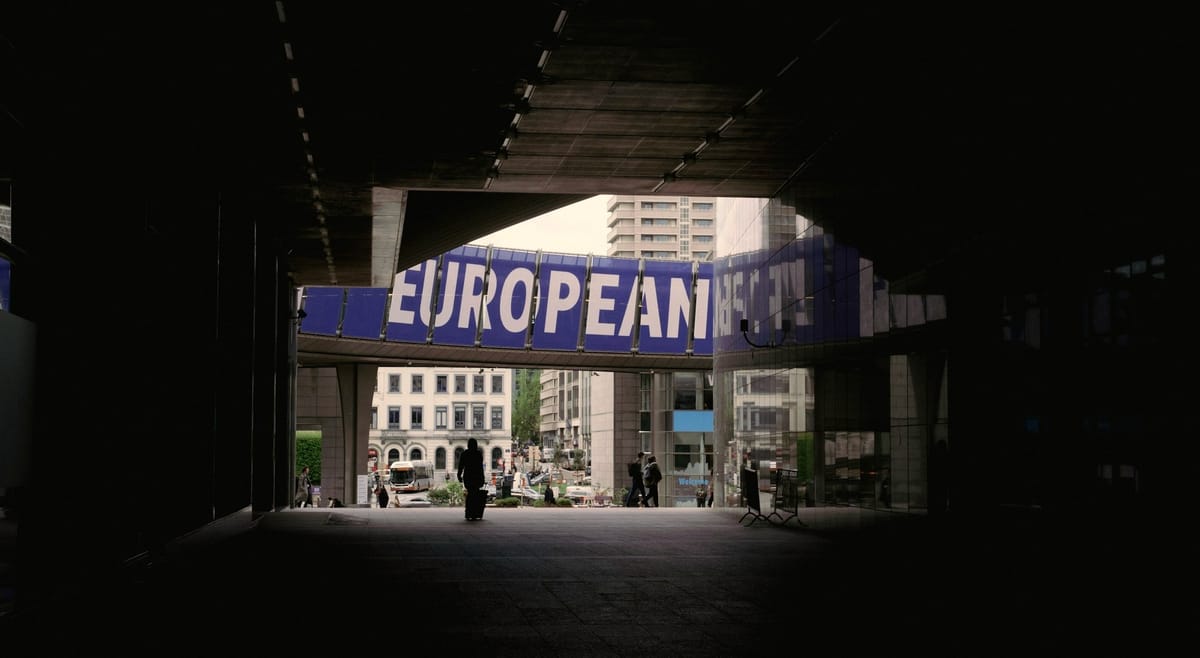As we were preparing this issue, a host of publications worried what the new Trump administration means for the European continent. Pundits wondered whether the international order is ‘Trump-proof’, whether the Old Continent has ‘grown up’ enough to take on its own military defense, and whether the new American president can really mean it when he talks of annexing Greenland. There is a near ubiquitous narration of a shock to the international system — no matter that it had already suffered so many convulsions in the years that went before. Trump’s call, as soon as he became president, for European states to raise their defence budget to 5 percent of GDP (a figure near four times current levels) was remarkable less for the fact of the US president’s boisterous intervention, as for the cacophony of supposedly liberal voices in Europe who argued that maybe he had a point.
We need not imagine that the international right is the brainchild of a Steve Bannon-like svengali to see that there is growing collaboration between right-wing forces across the Atlantic, not least when Elon Musk acts as the main amplifier for the Alternative für Deutschland. Yet there are, so to speak, also endogenous factors for European calamities, the continued effects of past austerity and present-day fears of decline. This also has a distinctly identitarian bent, as the obsession with ‘decivilisation’ spreads even to liberals in Paris and some former left-wingers in Germany. That Emmanuel Macron’s prime minister François Bayrou could claim that France is being ‘submerged’ by migrants reflects not simply the troubling convergence of mainstream political options, but the passion with which what was once called ‘progressive neoliberalism’ now takes up the language of an embattled European ‘garden’.
For a younger generation of activists, both the slaughter of Palestinians and their vilification in media has been an eye-opening experience as to quite how far humans can be sorted into worthy or not, live on TV and in real-time, in full face of the evidence of what is happening. This spirit was fully on display even when a ceasefire loomed in January (a ‘painful’ choice for Israel, commented outgoing German Social-Democratic Chancellor Olaf Scholz). While some European governments still speak of the need for a Palestinian state to emerge from the rubble, this increasingly seems both an unlikely prospect and one to which leading officials barely feel compelled to pay lip service. The halt in the Israeli war-drive in January — which may well be a pause rather than its end — leaves plain to see the inability of even more progressive European opinion to weigh on the conflict, reduced to occasional providers of humanitarian aid but bereft of solutions or a remote program for a lasting peace.
Yet, the declinist, sometimes even atavistic mood, also reflects a lack of promises of progress, even of the type that characterised the immediate, post-pandemic recovery. The rise of right-wing parties in last June’s European elections, if not producing a formal coalition stretching from conservatives to more extreme and post-fascist forces, has at least marked a notable entrenchment of the priorities of figures like Giorgia Meloni: high on toughening migration controls, low on green transition. The recent report by Mario Draghi calling for Europe to catch up with a retooled economic interventionism — keeping pace, at least in some limited sectors, with China and the United States — runs every chance of being converted into a manifesto for a distinctly military brand of industrial policy. It remains to be seen whether calls for a European army will reflect a liberal brand of federalism, or the rabidly right-wing forces currently rising in polls in most major European parties.
This issue of the transform review examines Europe’s dangerous paths — and what hope there is of finding a way out of them. At times, a focus on threats and the ills of the present may risk appearing as a gospel of despair. Yet, the many dramas faced demand a re-investment in collective, political solutions, even when they are not available from the current electoral mainstream.
The issue begins with Nancy Fraser, on Trump’s return and its meaning for US and global politics. The American philosopher and cultural theorist argues that the Democrats’ defeat in November owes precisely to their inability to listen to working-class Americans about the reality of the problems they faced, in a campaign focused on ‘positive vibes’ yet unrealistic about material hard ships. If Trump raised false hopes, she argues, then we can only act based on the premise that this will create opportunities for resistance, and not merely a spiral of cynicism.
Nadia Garbellini and Matteo Gaddi bring our attention back to Europe, and former European Central Bank chief Mario Draghi’s call for an economic reboot. Analysing not only the ideological blinkers that limit his appeal for higher public investment, but its failure to grapple with questions of redistributive justice and living standards, they point to the weaknesses of a project premised on restoring corporate profitability and a handful of business giants, not on citizens’ own lives.
The European Union’s lack of a clear horizon for the future is also the subject of an interview with Enzo Traverso, which also explores the regime of historicity in which we live, and the apparent return of spectres from the past. Is the rise of ‘post-fascism’ a return to the 1930s, or something else? In a far-reaching conversation with Ankica Čakardić, the historian explores the impasses of our present moment.
Anita Zsurzsán looks at how some of the political monsters of our time have assumed a distinctly female face. Using the concept of ‘femo-nationalism’, she explores how it has developed in the period since the War on Terror and Clash of Civilisations. Today, she explains, European reactionary leaders like Giorgia Meloni, Alice Wiedel and Marine Le Pen not only use their femininity to launder the reputations of their far-right parties, but likewise use their outspoken support for Israel to sell themselves as opponents of ‘Muslim antisemitism’.
Looking deeper into the anthropological and political shifts that have enabled the rise of new right-wing forces, Alexandros Kioupkiolis diagnoses our moment as that of a rising authoritarianism. In his analysis, a ‘pessimistic nostalgia’ faced with the multiple crises of our time, and even of neoliberalism itself, has been politically weaponised as a call to order, not limited to the ‘left behind’ and abandoned’ but swathes of the middle and professional classes.
Leonardo Paggi continues from a theme explored in issue one of the transform review, as he explores the history of ‘Just War’, the doctrine of humanitarian interventionism, and US military power. Other pieces from this issue are focused on national case studies, but which are also telling of the general course on which the continent finds itself.
Stefano Palombarini writes on the fragmentation of the French political arena, as illustrated by last summer’s elections. Whereas the ‘bourgeois bloc’ around president Emmanuel Macron has managed to coalesce parts of the political personnel of the former center-left and center-right parties, its social base has continually narrowed during Macron’s now-almost eight years as president. The leadership of France Insoumise has allowed a left-wing bloc to oppose both the Macron camp and the far right, but it faces a difficult battle for hegemony, especially faced with local elections in which it is weakly rooted.
Oisín Gilmore writes on the elections in Ireland, another country where the Left is relatively stronger than the European average. While Sinn Féin’s promise of action on housing costs and jobs again managed to rally a significant slice of younger voters, this election was marked by a rising focus on immigration. The two centre-right parties who have governed the state since independence were confirmed in power, albeit now reduced to a near-permanent coalition with each other.
Manu Fernández and Antonia Morillas also write on housing, with reference to a social movement in Málaga, Spain, which epitomises the rising conflict over rents. Even under a broad-left government, a crisis is reaching proportions not seen since the aftermath of the 2008 financial meltdown.
In this issue’s ‘Marxist-Christian dialogue’, Franz Segbers looks at the rising German far-right party Alternative für Deutschland, and its construction of a secularised ‘religious’ identity. If condemned by leaders of the German churches, this party has nonetheless postured as the defence of ‘Christian Europe’, an ideological banner defined by its opposition to purported Muslim threat.
Finally, in an ‘anniversaries’ piece, an extensive interview with Konstantinos Tsoukalas and Vangelis Karamanolakis explores half a century since the fall of the dictatorship in Greece.



